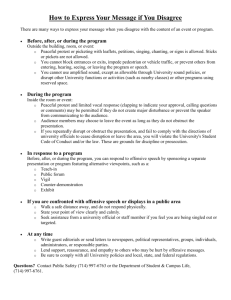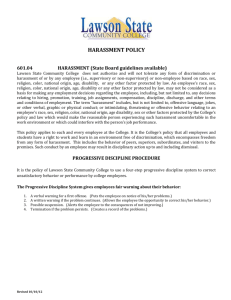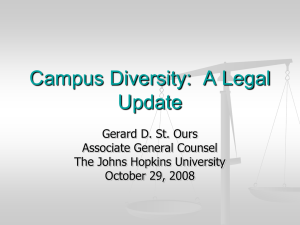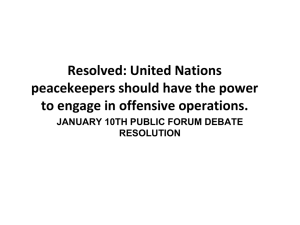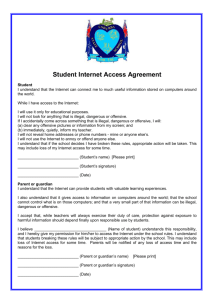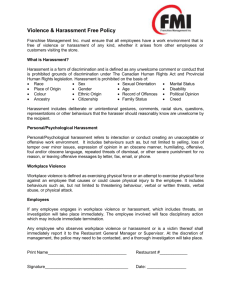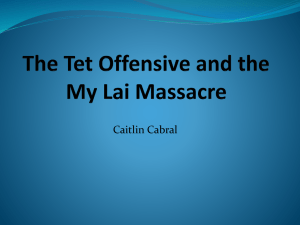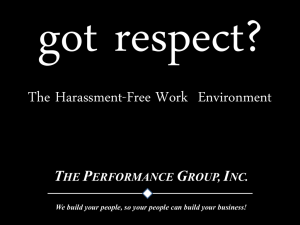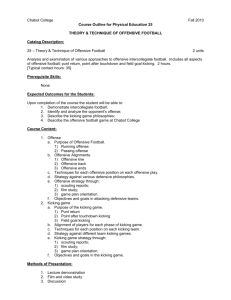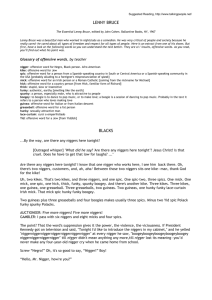unit 3 final
advertisement
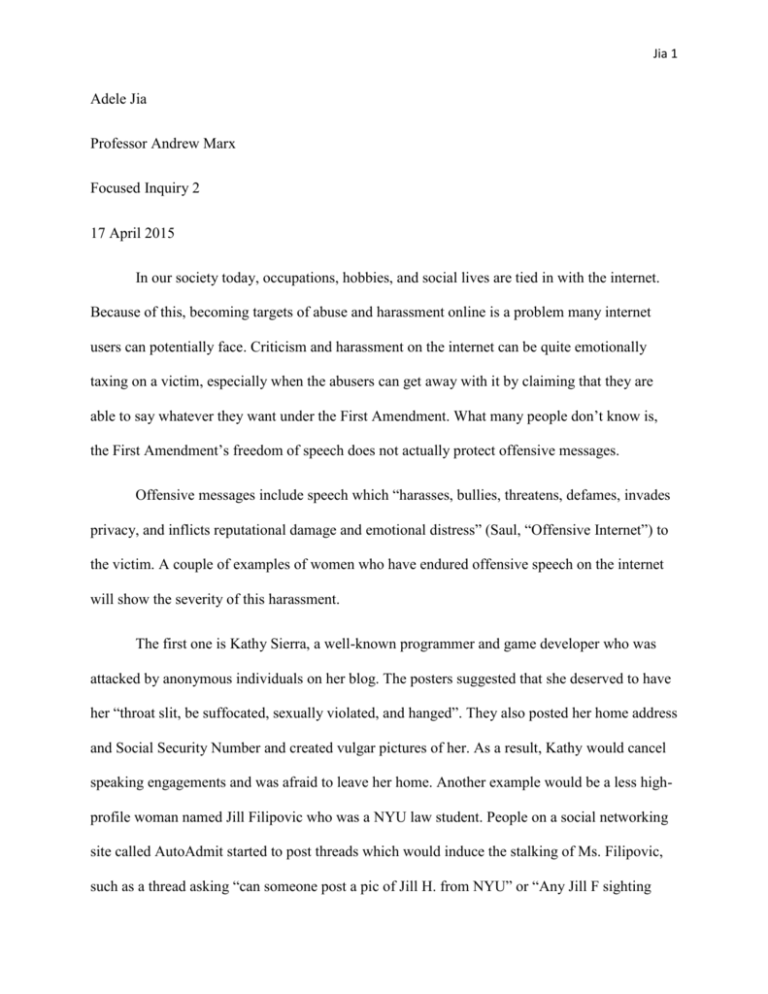
Jia 1 Adele Jia Professor Andrew Marx Focused Inquiry 2 17 April 2015 In our society today, occupations, hobbies, and social lives are tied in with the internet. Because of this, becoming targets of abuse and harassment online is a problem many internet users can potentially face. Criticism and harassment on the internet can be quite emotionally taxing on a victim, especially when the abusers can get away with it by claiming that they are able to say whatever they want under the First Amendment. What many people don’t know is, the First Amendment’s freedom of speech does not actually protect offensive messages. Offensive messages include speech which “harasses, bullies, threatens, defames, invades privacy, and inflicts reputational damage and emotional distress” (Saul, “Offensive Internet”) to the victim. A couple of examples of women who have endured offensive speech on the internet will show the severity of this harassment. The first one is Kathy Sierra, a well-known programmer and game developer who was attacked by anonymous individuals on her blog. The posters suggested that she deserved to have her “throat slit, be suffocated, sexually violated, and hanged”. They also posted her home address and Social Security Number and created vulgar pictures of her. As a result, Kathy would cancel speaking engagements and was afraid to leave her home. Another example would be a less highprofile woman named Jill Filipovic who was a NYU law student. People on a social networking site called AutoAdmit started to post threads which would induce the stalking of Ms. Filipovic, such as a thread asking “can someone post a pic of Jill H. from NYU” or “Any Jill F sighting Jia 2 yet”. She was many times threatened with rape and murder on this website. From seeing these threads, Ms. Filipovic started skipping class because she feared that the students around her would write about her whereabouts. She avoided making friends, became uninvolved in school groups, and felt helpless and depressed (Citron, “Law’s Expressive”). These examples show that online harassment can be devastating to one’s life. Luckily, these words of harassment actually violate many values which the freedom of speech promotes, two of which are truth and autonomy. Autonomy is another word for moral independence; it is the right which individuals have in living “according to their own judgements of what is valuable” (Yong, “Does Freedom”). In other words, people have the freedom of making their own choices, including having their own opinion and expressing it. From this understanding alone, it could be argued that restricting offensive speech is a violation of the right to autonomy, since the harasser has their own right to harass if they chose to do so. This view is flawed however, because autonomy is not so much about the promotion of any and all opinion, but that the law should show equal concern and respect for all people. This is an important distinction in understanding how autonomy is violated with offensive speech because although offensive speech is a part of the freedom of having an opinion, if one’s sole purpose for their self-expression is to extinguish the self-expression of another, their speech should not receive protection from the First Amendment (Citron, “Law’s Expressive”). In summary, a person’s autonomy should not falter in the words of an abuser, especially if their only intent was to diminish the other’s freedom of self-expression. Truth, another value of free speech, is also diminished by offensive speech. “The truth” is quite an ambiguous term, yet it is not supposed to be concrete and more of an ideal which the freedom of speech promotes. It is the exploration of truth which the freedom of speech Jia 3 encourages, as people can come together, whether in real life or online, and create a general consensus or explore general knowledge and ideas together with no restraints. The contrary would be, for example, if a government were to restrict its citizens to think a specific way. They would be imposing their own opinion which could not necessarily be true, yet the citizens would not be able to come to a realization or conclusion of what the truth is since they have no rights to object the government’s viewpoints. This is how the exploration of truth is a big part of the freedom of speech. One could argue that offensive messages are a part of the collection of “truths”, since what a person perceives whether right or wrong is their own truth. This argument is incorrect, however, because truth is not quite explored through vulgar or insulting opinion. In reality, offensive speech has little to do with the exploration of truths. When a speaker makes threats about rape, death, or insults the being of another, their intention is not to discover truth but to rather psychologically injure the victim. This diminishes the expressive importance of words. These two values of freedom of speech, truth and autonomy, are violated by offensive speech on the internet. Though they both promote self-expression and freedom, a further look into it reveals that they work against a harasser’s insulting messages. Autonomy, which is an individual’s right to living however they want, is diminished in a victim when a harasser brings them down by insulting their being. Truth is not explored by offensive speech at all and has nothing to do with a vulgar comment. Although the freedom of speech could protect one’s right to say anything they want, it’s more so true that offensive speech is bound by the values of what free speech promotes. Although this argument can break down the reasons on why offensive harassment is not protected by the First Amendment, there are still steps to take towards enforcing it. For that to Jia 4 happen, there are many factors to consider. For example, what should be the severity and methods of punishment for those who commit offensive speech on the internet? Who should enforce the law and what is their jurisdiction? There is still a long way to go before anything can be done, but for now it is good to be aware of this issue. Jia 5 Works Cited Citron, Danielle Keats. "Law's Expressive Value in Combating Cyber Harassment." ProQuest. Michigan Law Review Association, Dec. 2009. Web. 17 Apr. 2015. Levmore, Saul, and Martha C. Nussbaum. "Offensive Internet: Speech, Privacy, and Reputation" ProQuest. Harvard University Press, May 2011. Web. 17 Apr. 2015. Yong, Caleb. "Does Freedom of Speech Include Hate Speech?" Does Freedom of Speech Include Hate Speech? Springer Science+Business Media, 2011. Web. 17 Apr. 2015.
